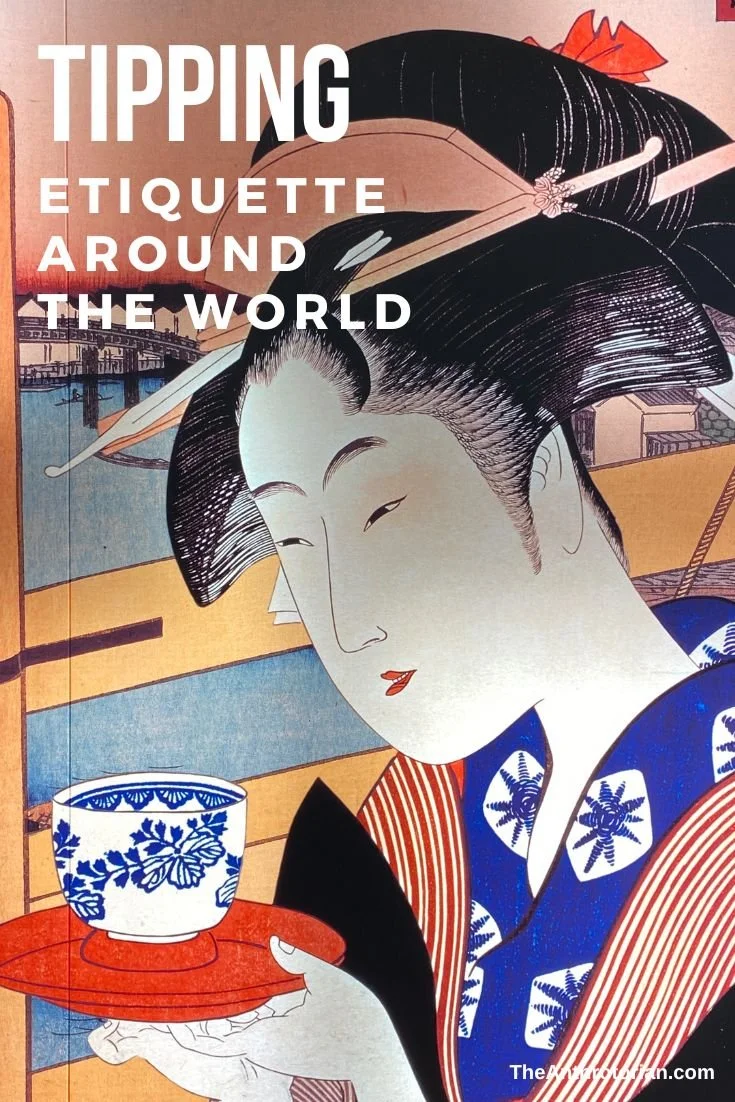Poo-doon-mao oh don gee yo was my (phonetic) address when I lived in South Korea, and one of the first things that I learned to say (once it had been written out for me of course) in Korean. I was told that it meant something like, “the brownish-orange buildings with numbers in the 500s on them.” All I knew for sure was that when I got in a cab and said it to the driver, I would end up in the right spot.
Read MoreWhat's The Difference Between An Agnostic and An Atheist?
Ever wonder what the difference is between someone who is agnostic and someone who calls themselves an atheist?
I don't know about you, but because I don't personally identify with either of these terms, the meaning of each of them can get a bit confusing.
Read MoreWhat are Idioms? They're A Piece Of Cake!
If you think learning a second language as a native English speaker is hard, be grateful that it isn't English that you have to learn! I never realized how complicated my own language was until I started teaching ESL in South Korea.
Read MoreWhy You Should Never Tell Men From The UK That You Like Their "Pants"
I and two of my closest friends had taken the long flight from Canada to the UK (specifically York) to be the bridesmaids for our childhood pal. A fellow Canadian, she was marrying the love of her life — a ginger-haired lovable guy from Scotland.
The days leading up to the wedding were a whirlwind of last minute shopping, events, decorating and general wedding preparations, giving very little time to get to know the Scottish/English side of the family that would be attending the wedding.
The ceremony was held in a beautiful stone building at the edge of the lush, green museum grounds, and after the "I do's" we all filtered out into the courtyard to sip champagne, and mingle.
Embracing the chance to finally get to know some of the groom's friends and family, I approached a group of dapper looking gentlemen to introduce myself. One was wearing a pair of vibrantly colored plaid pants, and thinking that it was the perfect icebreaker, I walked up to the group and said,
"I noticed your pants from across the room, and I have to tell you that I love them! They are fantastic!"
The man to his right spit his beer out and started laughing. The one to his left covered his mouth with his hand trying to hide his amusement, while the man that I had spoken to — the one with the FABULOUS pants — just looked at me a bit wide-eyed.
Confused at their reaction, I could feel myself turning red and said again, "Really, those are great pants!"
Now all three of them were laughing.
Really confused, and now the color of the nearby roses, I was debating running away when one of the VERY kind groomsmen leaned over from the group next to us and whispered, "In the UK, 'pants' mean underwear or panties."
Shit.
I had just told the groom's uncle that I liked his underwear.
After I closed my mouth, I turned to the laughing men and sheepishly said, "TROUSERS, I like you TROUSERS."
Then shrugging, I pointed at myself and said, "Canadian, not my fault!" and walked away in search of people who understood my own language...
Walking past a group of kilted men on the way to the bar I had an "Aha" moment, as I realized that all the groom's friends who had been telling me that they weren't wearing "pants" (duh I had thought, I can see that you are in a skirt), were actually telling me that they weren't wearing...
Pin Me!
Jandals, Thongs, or Flip Flops: The Multiple Meanings of English Words
I had NO idea how difficult English was to learn until I was teaching it.
Our sentence structure and grammar is so much more complicated than most other languages in the world, but what makes learning English really difficult is the slang that we use in everyday conversation. Especially because different countries, towns, and even social groups have their own slang — which makes it difficult for native speakers to have conversations with each other sometimes.
Have you ever tried having a conversation with a quick talking Irish man? Not easy my friend. (Unless, of course, you are Irish.)
For example, do you know what jandals are?
While if you are from Australia you do, but if you are from North America, you might know them as flip-flops, sandals, or thongs (not the underwear though — see, our language is confusing!)
Bling is another word for often tacky or very large jewelry, and anyone from Canada will know that a Double Double is a coffee with 2 creams and 2 sugars from the bakery-cafe Tim Hortons — but the Irish might pour you a really strong drink if you ask for one there.
To make things even more complicated for non-native speakers, our language is full of idioms (it is estimated that around 25,000 are widely used), for example telling someone they have "a chip on their shoulder" or that something is "a dime a dozen." To native speakers, these are perfectly normal phrases but tell them to someone who is just learning how to speak English and they will check their shoulder to see if someone dropped a potato chip on them, or ask where they can find a dozen of something for a dime — what a deal!
Still, think English is easy? Check this out:
"Let's face it — English is a crazy language. There is no egg in eggplant, nor ham in hamburger; neither apple nor pine in pineapple. English muffins weren't invented in England or French fries in France. Sweetmeats are candies while sweetbreads, which aren't sweet, are meat.
If the plural of tooth is teeth, why isn't the plural of booth, beeth? One goose, 2 geese. So one moose, 2 meese? One index, 2 indices? If teachers taught, why didn't preachers praught? If a vegetarian eats vegetables, what does a humanitarian eat?
English was invented by people, not computers, and it reflects the creativity of the human race, which, of course, is not a race at all. That is why, when the stars are out, they are visible, but when the lights are out, they are invisible."
Pin Me!
Related Posts
The Difference Between Complete and Finished
No dictionary has been able to adequately explain the difference between the words complete and finished. However, at a linguistic conference attended by some of the best linguists in the world, a single man changed that.
The director of the conference issued this challenge: "Some say there is no difference between the words complete and finished. Please explain the difference between complete and finished in a way that is easy to understand."
This was the man's astute answer: "When you marry the right woman, you are COMPLETE. But, when you marry the wrong woman, you are FINISHED. And when the right one catches you with the wrong one, you are COMPLETELY FINISHED!"
His answer was received with a standing ovation lasting over five minutes!
This story — taken from an e-mail that I received from a colleague — makes a very important point: Sometimes language can not be defined, explained or translated in a way that makes academic sense. Sometimes you understand the meaning only by the context of a word or the way that it is said.
Some of the most beautiful poems lose their beauty when translated, and texts translated from a different tongue to English lose their meaning.
Language transmits culture as much as a dance, music, or art does. And like these other mediums, trying to define, or understand often causes meaning to be lost. Or, the general public has moved on to a new word, painting, or instrument leaving what scholars were trying to define obsolete.
















